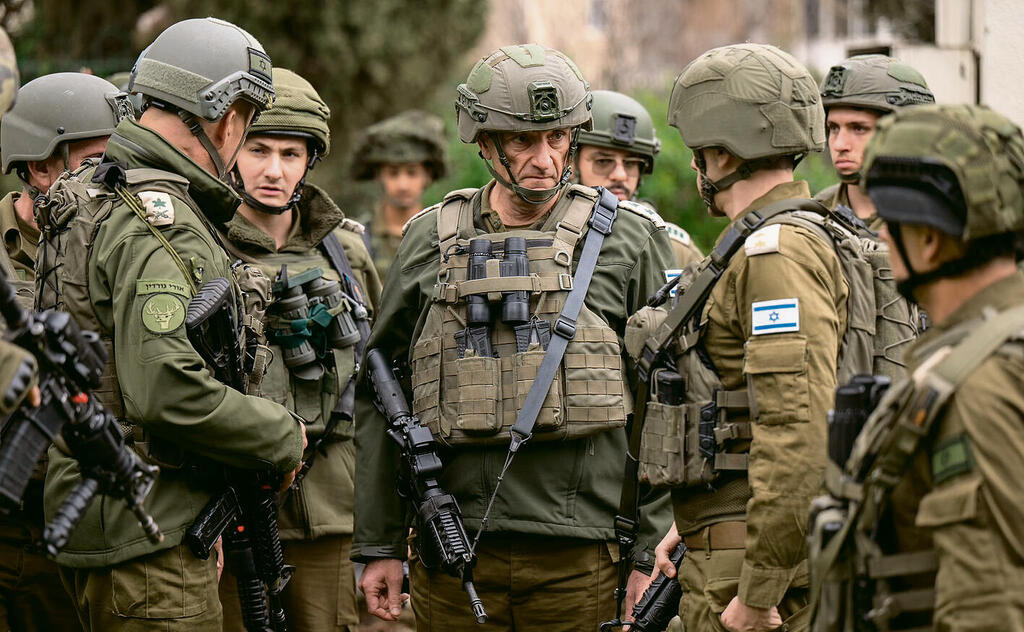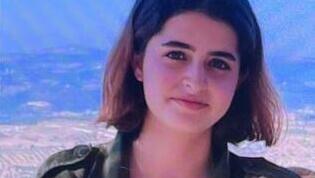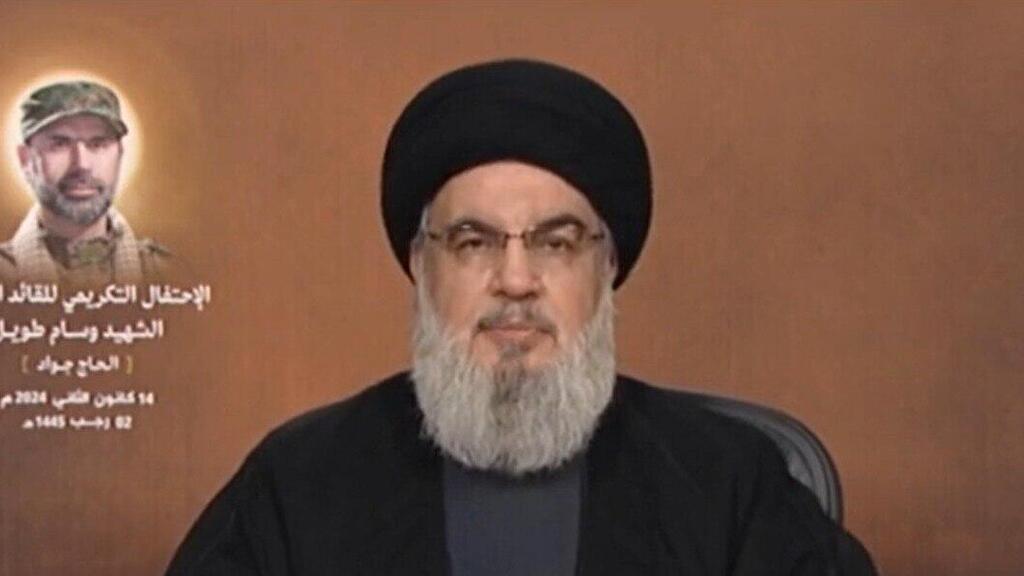Getting your Trinity Audio player ready...
The longer the multi-front war continues, the extent that Israel and Hezbollah can fight and not enter a full-scale war becomes more clear, as they continue to dance a bloody tango with each other. In recent days, Hezbollah’s attacks on northern Israeli communities and the rhetoric of Hezbollah leader Hassan Nasrallah rhetoric have escalated further. Yet, both sides are careful to convey that the red line hasn’t been crossed.
More stories:
After a woman and a teen were seriously injured by a missile landing in Kiryat Shemona on Monday, Staff Sergeant Omer Sarah Benjo was killed in a Hezbollah rocket barrage on Wednesday.
3 View gallery


IDF Chief of Staff Lt. Gen. Hezi Halevi on the northern border
(Photo: IDF Spokesperson's Unit)
At 9:04 a.m. on Wednesday, 11 rockets were fired near the village of Ramish in southern Lebanon. Four of them fell in open areas near Netu’a, one near the parking lot of the Ziv Medical Center in Safed, and another missile hit the IDF Northern Command, leading to Benjo’s death.
Contrary to claims, the fire wasn’t directed at the IDF Northern Command; however, the military is investigating why the Iron Dome interceptors didn’t activate and whether the sirens operated later than they should have.
This is a critical point in the ongoing war with the potential for escalation: the interception of the missiles wouldn’t only have prevented the terrible loss of life but also significantly reduced the IDF's retaliation to the incident, which included waves of airstrikes in Lebanese territory, hitting, among other things, targets belonging to Hezbollah's Radwan Force, military structures and terrorist infrastructure. Lebanon reported of at least 11 fatalities, including a woman and two children.
According to the so-called rules of the game with Hezbollah, it can choose to attack civilian targets as it has done in the past. Therefore, it is right for Israelis in areas near the border to be on high alert. If, God forbid, Hezbollah succeeds in causing casualties, the Israeli response will be proportional, and this is precisely the path to a comprehensive war that both sides have been trying to avoid for about four months now.
Since the start of the war, Hezbollah has lost more than 200 of its operatives and other Palestinian actors. Nasrallah, however, doesn’t intend to stop, as he clarified in his speech; In his view, as long as the war in Gaza continues, the Lebanese front will remain active.
As learned from reliable reports in the Hezbollah-affiliated outlet Al-Akhbar, it seems the Lebanese terrorist organization is deeply involved in the details of the negotiations with Hamas for a hostage release deal, and perhaps even indirectly contributes to its management.
Nasrallah also rejected all initiatives by mediators for a cease-fire in Lebanon, arguing that they’re currently irrelevant and that Israel isn’t in a position to set conditions. His words don’t indicate the pressure he feels from the elimination of his operatives, which can be seen in his demanding they adhere to security protocols when using smartphones.
Following the escalation, IDF Chief of Staff Lt. Gen. Herzi Halevi toured the northern border on Wednesday. "We’re preparing for a war in the north. This dialogue between us and the local authorities here is very important,” he said.
“Even when you go home, the mission is to think about readiness for war. That is our first task, and we are now focusing on being prepared for war in the north. In the end, we will be ready for war. If it doesn't end in war, it won't end in compromise on the achievements,” he added.
Halevi didn’t just talk on the topic of readiness: The IDF units that fought in Gaza are training for a possible operation in Lebanon. Ironically, the hesitation regarding the ground forces' capabilities before entering Gaza has turned into high expectations for the challenge in Lebanon.
It’s important to note that the gap between the fronts is significant: in the densely populated urban area, the threat of anti-tank missiles from a distance of up to eight kilometers, and in facing the advanced capabilities of much more skilled terrorists.
This doesn’t mean that the IDF can’t face these challenges, but rather that a significant conceptual change is required in the management of the next battle, from the main command to the last soldier dozens of kilometers into Lebanon, unlike in Gaza which is very close to the border. In short, this will be a completely different fight.




